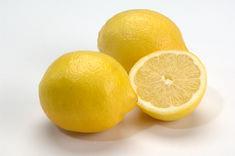
Lemon prices could be set to rise this summer if the EU takes action on the Argentinean government’s expropriation of Spanish company Repsol’s share in Argentinean oil firm YPF, leaving the EU market short of lemons this summer.
The Spanish government has already cut biodiesel imports from Argentina. Now Spanish growers are clamouring for their national government and the European Union to prohibit the import of Argentinean lemons as part of further measures proposed in retaliation at the Argentinean move.
European Commission vice-president and commissioner for industry, Antonio Tajani, warned on Tuesday: “The EU is not going to stand by with our arms folded in the face of this expropriation.” He added that Argentina needed to restore the relationship between the two trading partners. “It is up to Argentina to make the next move,” he said, highlighting the fact that the European parliament has also passed a resolution condemning the expropriation.
Growers organisations Asaja-Murcia and Asaja Alicante, which between them represent the majority of lemon growers in south-eastern Spain, have called for urgent measures.
Alfonso Gálvez Caravaca, secretary-general of Asaja-Murcia said: “In the face of this outrage against Spanish interests, the EU should act quickly and impose sanctions…one of which should be to block Argentinean lemon imports to the EU, bearing in mind that Argentinean lemons usually flood the EU market, having an adverse effect on the market for Spanish Verna lemons.”
However, one UK importer believes that a ban on Argentinean lemon imports would leave the UK and wider European market disastrously short of product. He said: “I don’t think the Spanish will get their way, but if they do, we would be looking at a significant effect on the market. Argentina is the largest southern hemisphere lemons exporter and this situation would affect the whole European marketplace; there is no way Spain and South Africa could supply the whole market.”



